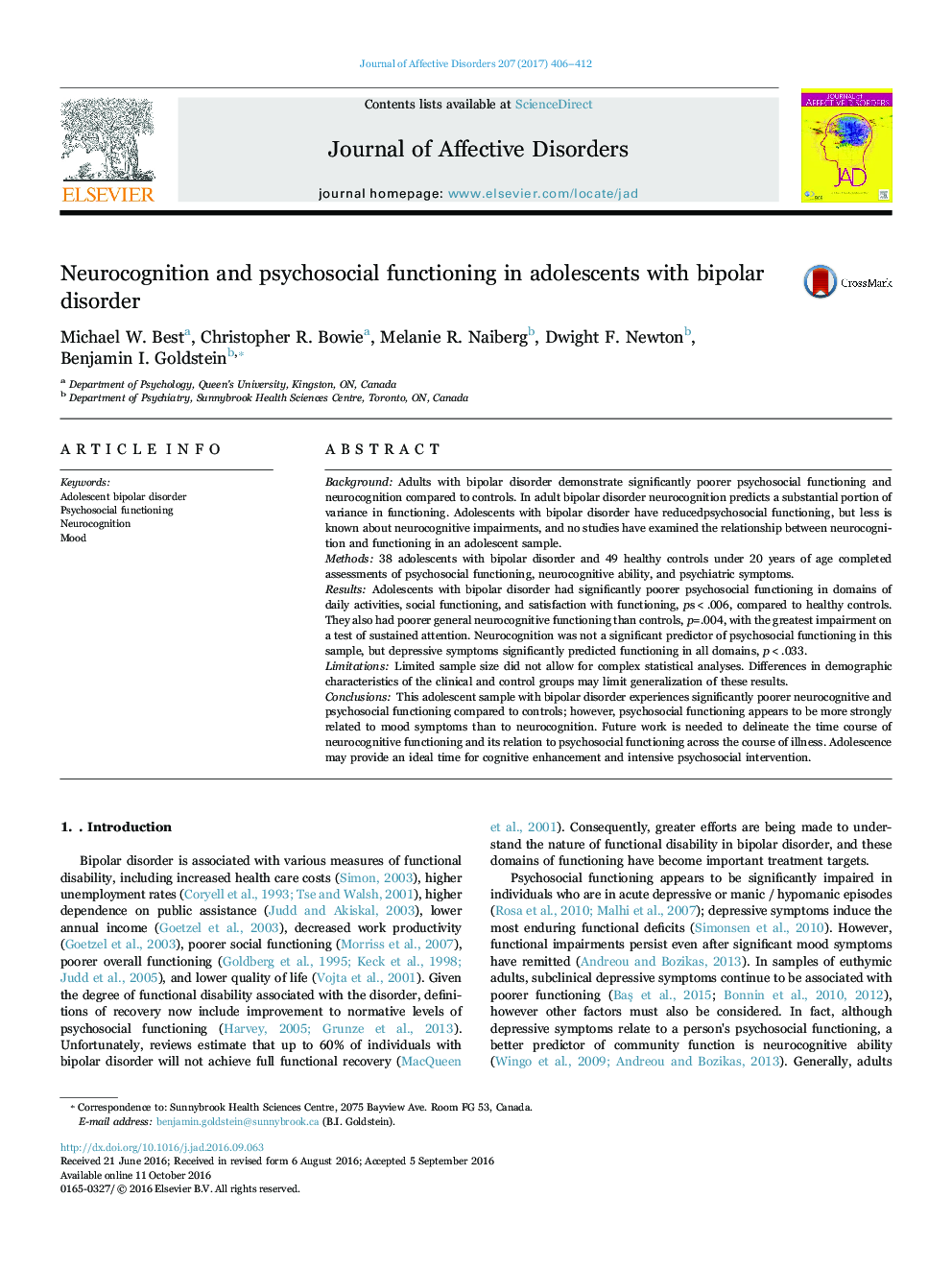| کد مقاله | کد نشریه | سال انتشار | مقاله انگلیسی | نسخه تمام متن |
|---|---|---|---|---|
| 6229561 | 1608118 | 2017 | 7 صفحه PDF | دانلود رایگان |
- Adolescents with bipolar disorder have poorer neurocognitive performance than controls.
- Adolescents with bipolar disorder have poorer psychosocial functioning than controls.
- Neurocognitive performance did not predict psychosocial functioning in bipolar disorder.
- Depressive symptoms were the only significant predictor of community functioning.
- Adolescence may be an important point of intervention for cognitive difficulties.
BackgroundAdults with bipolar disorder demonstrate significantly poorer psychosocial functioning and neurocognition compared to controls. In adult bipolar disorder neurocognition predicts a substantial portion of variance in functioning. Adolescents with bipolar disorder have reducedpsychosocial functioning, but less is known about neurocognitive impairments, and no studies have examined the relationship between neurocognition and functioning in an adolescent sample.Methods38 adolescents with bipolar disorder and 49 healthy controls under 20 years of age completed assessments of psychosocial functioning, neurocognitive ability, and psychiatric symptoms.ResultsAdolescents with bipolar disorder had significantly poorer psychosocial functioning in domains of daily activities, social functioning, and satisfaction with functioning, ps<.006, compared to healthy controls. They also had poorer general neurocognitive functioning than controls, p=.004, with the greatest impairment on a test of sustained attention. Neurocognition was not a significant predictor of psychosocial functioning in this sample, but depressive symptoms significantly predicted functioning in all domains, p<.033.LimitationsLimited sample size did not allow for complex statistical analyses. Differences in demographic characteristics of the clinical and control groups may limit generalization of these results.ConclusionsThis adolescent sample with bipolar disorder experiences significantly poorer neurocognitive and psychosocial functioning compared to controls; however, psychosocial functioning appears to be more strongly related to mood symptoms than to neurocognition. Future work is needed to delineate the time course of neurocognitive functioning and its relation to psychosocial functioning across the course of illness. Adolescence may provide an ideal time for cognitive enhancement and intensive psychosocial intervention.
Journal: Journal of Affective Disorders - Volume 207, 1 January 2017, Pages 406-412
